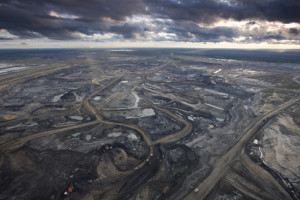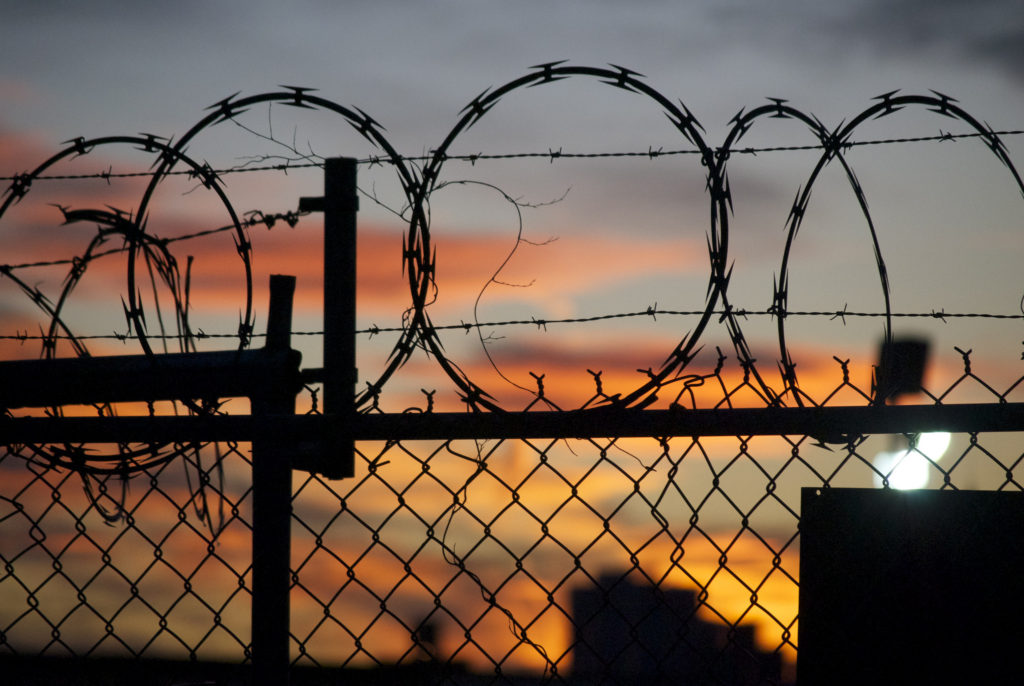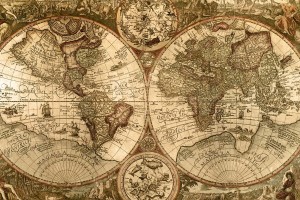
An apocalyptic landscape: Syncrude Aurora Oil Sands Mine, north of Fort McMurray, Canada.
I’m not in the habit of writing apocalyptic poetry, but I wrote this a few months back as I reflected on what I’ve been learning about the industrial food system, the global economy, and climate change. We often use the word “apocalypse” to refer to the idea mass destruction or the end of the world, but in the original Greek it means “uncovering”: the lifting of a veil; a revelation. For people who seek to be shaped by the Biblical narrative, its important to know who we are, and where we are, in the story. Imagining all kinds of evil outside of ourselves or our own community without recognizing our role in contributing to life or to destruction is worse than useless–it actually distracts us from using the power available to us to take meaningful action.
I grew up in churches where we talked about the end of the world fairly often, but it was all mystifyingly spiritual–beyond our control and even beyond our understanding. We rarely discussed any of the real-world destruction going on around us in the form of wars or other man-made disasters. We never imagined that we might be benefiting from, let alone contributing to, the very systems of power that were destroying God’s creation or the lives of our fellow human beings.
St. John wrote the book of Revelation to help his readers understand the times in which they lived and to help them respond faithfully to their situation. Here is what it might look like to interpret the book of Revelation in our twenty-first century context of climate refugees, mass extinction, and a worldwide economy that depends on ecological and human exploitation to sustain its perpetual growth:
Apocalypse
I nightmared of the rapture
From the age of ten
Looking out for all the signs
That would mark the end:
The blood-red moon,
The rebuilt temple,
Rumors of famine and war
It was simple
To keep watch and prepare
For the tribulation:
A mysterious age
When the world would be one nation
With power concentrated
In a single pair of hands:
The evil antichrist
Against whom we would stand
We brave, holy Christians
Ready to be martyred
If we hadn’t been raptured already
By the time the suffering started
Yes, this was the revelation
According to St. John
And Tim LaHaye
And on and on
They proclaimed with confidence
All those fiery preachers
They understood it all;
They were inspired, spiritual teachers
The evil they envisioned
Was otherworldly; other
It had nothing to do with us,
With how we lived with one another.
But what if apocalypse does not depend
On events beyond our knowing?
What if the world will meet its end
At the hands that should have been sowing
Gardens of perpetual abundance
Instead of economies of perpetual growth
Contentment instead of greed
So that life would not be choked?
“Rule over all the earth,and subdue it,”
Say our scriptures in the beginning.
“Tend this garden in my stead,”
But already our heads were spinning…
With ways to turn this mandate
For protecting the work of God’s hand
Into the right to rape and plunder
like warlords on stolen land.
God said that it was very good
But we couldn’t just take that at face value
There was still untapped potential
For air-conditioning and indoor bathrooms
And look, God approves–
With wealth He does bless!
Convenience, comfort,
More is always better than less
But somehow we missed the signs
Of the snowballing destruction
That we “the faithful” brought about
With our affluent consumption.
“Fallen! Fallen
Is Babylon the Great!”
Her sins are piled to heaven,
Judgment will no longer wait.
The saints and apostles
and prophets rejoice,
But we wealthy who made merry
Cannot find a joyful voice
“Come out of her,” the Lord had said
But we all felt just fine
It was difficult to leave—
We all had drunk her wine
Drunk with power, and distraction
It was difficult to see
all the blood there on our hands
as we lived our lives in ease.
For our finely-built houses
We turned forest land to sand
For our juicy beef burgers
We drove peasants from their land
But this all was done by proxy,
Please try to understand,
We would not have done this dirty work
Directly with our hands.
“Woe! Woe, O great city,
O Babylon, city of power!”
All your horses and chariots and tanks
Could not prolong your life by an hour.
For your growing empire was rotting
All along, from the inside out,
Destroying the very nourishment
That you could not live without.
You sought to trade
and buy and sell
Human bodies and souls
ecosystems as well
You poisoned your own rivers
And you counted it as profit
The important numbers grew,
But you never measured losses.
Why think about the future?
In the present, you could thrive.
No need to let inconvenient fact
Intrude on your way of life:
Freedom of choice
Freedom of trade
Slave labor hidden
In everything that’s made.
Poison air that burns the lungs
Of the workers making shoes
“Pleather weather” over factories
That produce for me and you
Ocean waves enclosing
An island homeland beneath the surf
That’s the end of someone’s world,
If not the entire earth.
Famines, droughts, deforestation,
And wars waged over water
This certainly will end the lives
Of certain sons and daughters
Genocides of birds and of fish
And bees and soil, too.
All creatures that eat food will die.
Eventually, humans do.
No showy Armageddon;
Just a slow fading out:
Like a self-inflicted wound
That finally brings death round.
Or like the drug addicted
Overdosing on the sidewalk
En masse, of course, but just as
accidental and suicidal.
This, the self-made apocalypse
Of prideful, self-made men
More predictable than what we sought
In our cryptic verses back then.
revelation apocalypse


